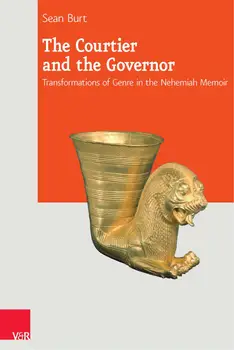The Nehemiah Memoir, the narrative of the royal cupbearer sent to rebuild Jerusalem, is central to Ezra-Nehemiah's account of Persian Judah. Yet its emphasis on one individual's efforts makes it a text that ill-fits the book's story of a communal restoration. Sean Burt analyzes the nature of this curious text through the lens of genre criticism and identifies the impact of its use of genres on its early reception in Ezra-Nehemiah. Drawing upon contemporary theorists of literary genre, within the field of biblical studies and beyond, he builds an understanding of genre capable of addressing both its flexibility and its necessarily historical horizon. Burt argues that the Nehemiah Memoir makes use of two ancient genres: the novelistic court tale (e.g. Esther, Ahiqar, and others) and the "official memorial," or "biographical" genre used across the ancient Near East by kings and other governmental officials for individual commemoration. This study contends that the narrative subtly shifts genres as it unfolds, from court tale to memorial. Nehemiah the courtier becomes Nehemiah the governor. While these genres reveal an affinity to one another, they also highlight a central contradiction in the narrative's portrait of Nehemiah. Nehemiah is, like the people of Jerusalem, beholden to the whims of a foreign ruler, but he also simultaneously represents Persia's power over Jerusalem. Burt concludes that the Nehemiah Memoir's combination of these two ultimately incommensurate genres can account for how the writers of Ezra-Nehemiah modified and corrected Nehemiah's problematic story to integrate it into Ezra-Nehemiah's vision of a holistic restoration enacted by a unified people.
Starten Sie noch heute mit diesem Buch für CHF 0
- Hol dir während der Probezeit vollen Zugriff auf alle Bücher in der App
- Keine Verpflichtungen, du kannst jederzeit kündigen
Autor*in:
Reihe:
Journal of Ancient Judaism. SupplementsSprache:
Englisch
Format:

Light Against Darkness : Dualism in Ancient Mediterranean Religion and the Contemporary World

Biblical Quotations and Allusions in Second Temple Jewish Literature

Between Text and Text : The Hermeneutics of Intertextuality in Ancient Cultures and Their Afterlife in Medieval and Modern Times

The Ways of a King : Legal and Political Ideas in the Bible

Between Symbolism and Realism : The Use of Symbolic and Non-Symbolic Language in Ancient Jewish Apocalypses 333-63 B.C.E

Between Cooperation and Hostility : Multiple Identities in Ancient Judaism and the Interaction with Foreign Powers

"See, I will bring a scroll recounting what befell me" (Ps 40:8) : Epigraphy and Daily Life from the Bible to the Talmud

Religious Competition in the Third Century CE: Jews, Christians, and the Greco-Roman World

Exploring the Dead Sea Scrolls : Archaeology and Literature of the Qumran Caves

The Faces of Torah : Studies in the Texts and Contexts of Ancient Judaism in Honor of Steven Fraade

"You Shall Not Kill" : The Prohibition of Killing in Ancient Religions and Cultures

Institutionalized Routine Prayers at Qumran: Fact or Assumption?
